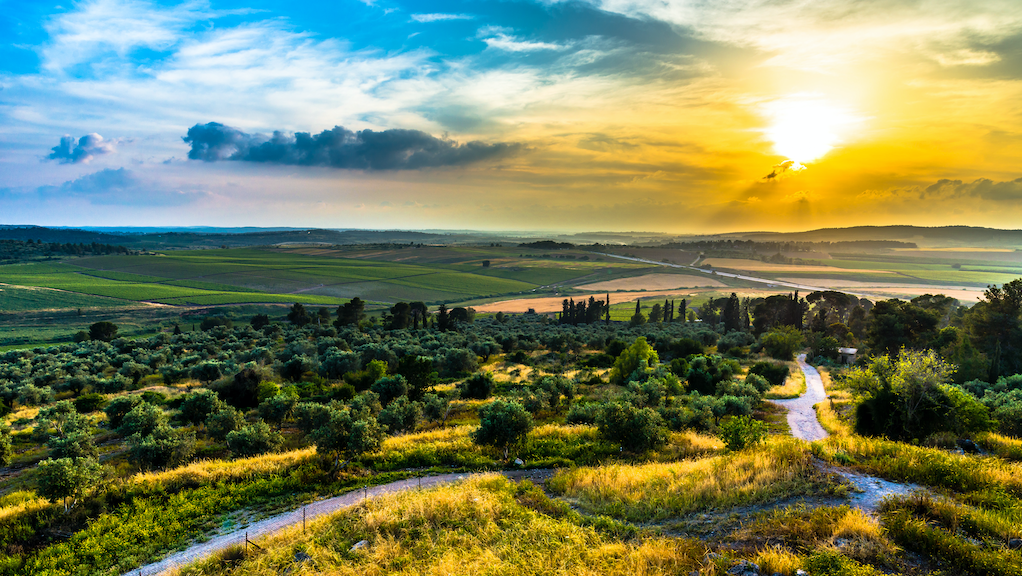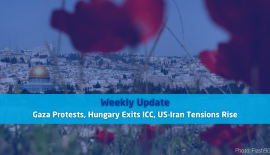A Look at Zechariah 14: Jesus Christ – Coming to Stay
“Your kingdom come. Your will be done in earth, as it is in heaven.” Matthew 6:10
We recite this line every time we say the Lord’s Prayer. Do we understand what it means? We are asking… and declaring… that God’s kingdom is coming to earth, and that God’s will can override the will and ways of temporal earthly rulers. Just like it is in heaven.
Yet you can’t have a kingdom without a king. So in praying for the ‘kingdom to come,’ we are also implicitly asking for the Lord to come, too. Finally, you have to have a capital headquarters for the king and kingdom. Without question, it can be only one place: Jerusalem, the City of David, the City of God, and the City of the Great King (Psalm 48:2; Matthew 5:35).
Scripture is clear that God is coming to the earth. Psalm 96:13: “Let all creation rejoice before the Lord: for He comes, for He comes to judge the earth: He shall judge the world with righteousness, and the people with His truth.” God is going to judge the earth but not from His heavenly throne. He is coming down and judging earth from earth. See also Psalm 98:9.
While God is a master delegator, using angels and anointed people to carry out His will, Scripture teaches that God is personally coming to earth to fight, win, judge, and reign. His coming is more than a courtesy call; He is coming to stay.
‘Scripture teaches that God is personally coming to earth to fight, win, judge, and reign.’
One potent passage of Scripture about the personal return of the Lord to earth is found in Zechariah 14. A parallel passage is Revelation 19, where the ‘coming of the Lord’ equates to ‘the coming of Christ.’ If you recall, in Zechariah 12, God would make Jerusalem a ‘cup of trembling’ to the surrounding nations and a ‘burdensome stone’ for all people. A humble city of stone at the fringe of the Persian empire during Zechariah’s day, he foresaw 2,500 years ago that the holy city would become an international obsession. Modern history has borne this out.
Zechariah 14 starts with the phrase: “Behold, the day of the Lord comes” (14:1). This special day represents the transition from the rule of man to the reign of God, culminating in the Lord’s coming to earth. Jerusalem will be the centrepiece.
“For I will gather all nations against Jerusalem to battle” (14:2). Just as God put a hook in the jaw of Gog and brought him forth to his swift demise (Ezekiel 38:4), so the Lord will gather the nations to battle against Jerusalem, and it will be their undoing. The continuous and growing global antagonism—and antisemitism —against modern Israel will turn into military action. It will be a bloodbath.
“Then shall the Lord go forth, and fight against those nations, as when he fought in the day of battle” (14:3). This is a remarkable scenario: first, the Lord will gather the nations to attack Jerusalem, which they do; then, He personally comes down and fights against those nations. The Lord knows how to fight and win. During the Israelite conquests of Canaan under Joshua, the Lord promised to be with them, go before them, and fight on their behalf. On the day that Joshua commanded the sun to stand still at Gibeon and the moon over the valley of Ajalon, it says in Joshua 10:14: “And there was no day like that before it or after it, that the Lord hearkened to the voice of a man: for the Lord fought for Israel.” God promises to destroy all the nations that come against Jerusalem (12:9).
- Could it be that preceding the divine intervention in the battle for Jerusalem, the people of the city will receive the spirit of grace and supplications, look upon Him whom they pierced, and mourn for Him as their only son (12:10)?
- Could this be the time Jesus foretold that Jerusalem would not see Him again until it said “Blessed is he that comes in the name of the Lord” (Matthew 23:39)?
- Is this the time that “And so all Israel shall be saved: as it is written, There shall come out of Sion the Deliverer, and shall turn away ungodliness from Jacob” (Romans 11:26; Isaiah 59:20)?
Then the most amazing things happen. After the Lord wins the battle for Jerusalem:
- He makes a victory ascent on the Mount of Olives, just east of the Old City. Great topographical changes occur: the mountain splits in two (14:4).
- From the Mount, living water flows westward to the Mediterranean and eastward to the Dead Sea (14:8).
- People will flee like in the aftermath of the great earthquake in the days of Uzziah, king of Judah, “and the Lord my God shall come, and all the saints with You” (14:5).
- It shall be a unique day, not the normal day and night cycle, for light will shine in the evening (14:6-7).
Then, the most important event happens. It is the answer to all our prayers, hopes, longing, and desires.
“The kingdoms of this world have become the kingdoms of our Lord, and of His Christ; and He shall reign forever and ever” Revelation 11:15.
No more crime, corruption, royal commissions, heavy tax burden, abuse of power, unrighteous rule. The Lord’s prayer has been answered, because:
“And the Lord shall be king over all the earth: in that day shall there be one Lord, and his name one.” (Revelation 14:9)
God the King and His kingdom have come… to stay.




